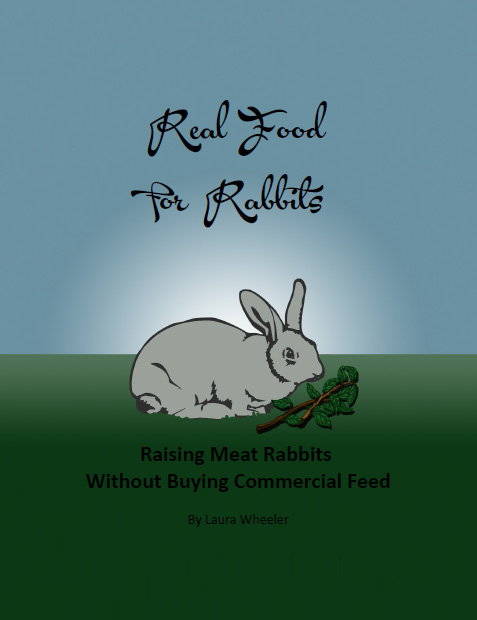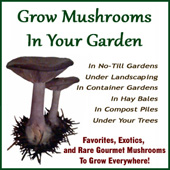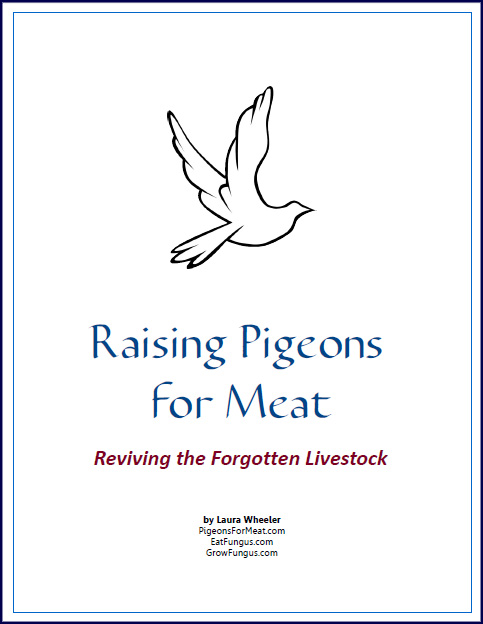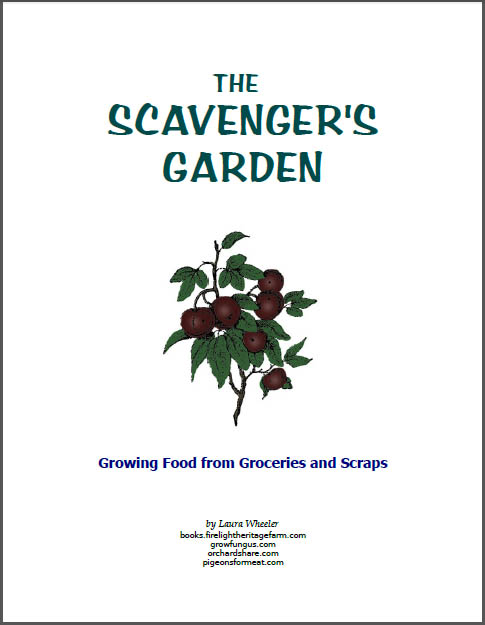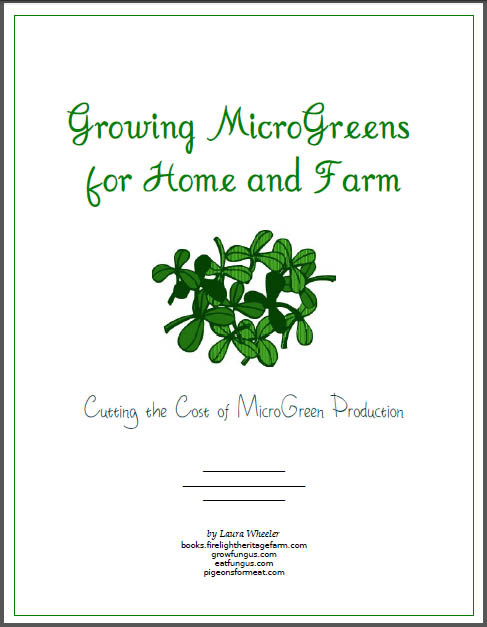 Click to Download Your Free Heritage Pickling and Culturing e-Book Now!
Click to Download Your Free Heritage Pickling and Culturing e-Book Now!
Instant Download, NO Registration Required!
The Difference Between Hybrid, GMO and Open Pollinated Seeds
Many people get confused when faced with the terms used to describe various types of available seeds and plants to grow in their garden, or which are responsible for the food they eat. In fact, confusion between hybrids and GMOs is a leading issue of misunderstanding among home gardeners and people who are just beginning to choose healthier food.
It all has to do with pollination. The plant means of reproduction, which keeps the plant genetic pool varied. A discourse on the various means of pollination is not possible here, we are principally concerned with just a few issues.
- How the pollination takes place - whether controlled or uncontrolled by people.
- Whether the genetic breeding process is manipulated by direct gene tampering in a lab.
- Whether the resulting plant and seeds are patented, and therefore seed saving for next year's crop is prohibited.
- Whether there is a significant potential for a dangerous manmade mutation to get out of control and cause serious harm.
- Whether those doing the manipulation are being responsible in their ownership of problems caused by their manipulation.
Hybrids and GMOs are not the same thing. There are some distinct differences. And Open Pollinated just means you can save seeds and the seeds will breed true if you do not have other varieties of the same kind of plant for them to cross pollinate with.
So, let's start with a description of those three terms in our headline:
- Open Pollinated Seeds are seeds that are left to pollinate by natural means. They may still cross (resulting in a hybrid), if a bee or other pollinator swaps pollen between two different varieties of the same species. They may still mutate - Nature mutates things sometimes. But they will do so slowly, and if you plant a seed that you saved from your plants last year, and you did NOT have other varieties of the same plant blooming at the same time, then your plant will breed true. That is, if you plant Paris Island Cos Romaine Lettuce that you let go to seed and collected seed from, you'll still get Paris Island Cos Romaine Lettuce. Open Pollinated Seeds may not be patented.
- Hybrids are seeds which are produced by controlled breeding between two different varieties of plant. They are generally genetically unstable, so if you collect seeds from them, and plant them, you may get many kinds of genetic variation from the pollination of those seeds, even if you did not have other varieties blooming at the same time (just as two parents can produce children who have radically different looks). Hybrids must be more carefully produced than open pollinated seeds, so they are more costly. Hybrids MAY be patented, and may not be reproduced without royalties being paid to the developer if they have been patented. Hybridization occurs naturally in nature - indeed, it is what happens when two varieties of open pollinated plants cross pollinate. It is the process by which nature keeps the genetics varied and hardy. But when man does it, man then has the right to control the output of that hybrid, so rights are granted by the government to the developer of them, if the developer chooses to claim those rights by patent (a very costly process). Not all will. So there are many Unpatented hybrids also.
- GMOs, or Genetically Modified Organisms are plants (or animals) which have had the genes directly manipulated in a lab. Bits of genetic material is removed and replaced with genetic material from another organism, or sometimes genetic material is simply added to it - genes from animals may be placed in plants, or genes from pesticidal fungus or plants may be inserted into food plants. The two organisms in question may be completely incompatible. These are changes which CANNOT occur in nature, except by gross genetic mutation, in which case the plant will usually not survive because there would typically be other non-viable changes which would occur with catastrophic genetic mutation which would kill the plant. GMOs may have some kinds of changes made which result in harm to either the environment, or to consumers (this is not just theory, it has already caused the development of superweeds, and is likely part of the reason for hive deaths among honeybees - the reasons why bees are particularly vulnerable to pesticide containing GMOs is complex). GMOs CAN interbreed with non-GMO plants, and contaminate the natural gene pool. GMOs are costly to develop, and virtually always patented. Companies that own the patents get nasty about it when their crops contaminate non-GMO crops. And the contamination cannot be controlled.
These three types of plants are distinctly different, and if you want to understand the issues surrounding GMOs, you need to understand the differences.
Now...
Heritage Seeds, or Organic Seeds are two additional things you may see.
- Heritage Seeds, or Heirloom Seeds just mean seeds that have been around for a long time, which are not patented, and which MAY OR MAY NOT BE hybrids, depending on who is describing them. They will only breed true if they are NOT labeled as hybrids. These seeds are typically GMO-free (with the caution listed in the note below).
- Organic seeds are typically GMO-free (by law they are supposed to be), as far as it is possible to assure. They are produced under organic conditions, and must not be treated with chemicals prior to packaging (as are many non-organic seeds), with the caution listed in the note below.
NOTE: Because corn is so easily cross pollinated, and very difficult to keep true to type anyway, it is very easily contaminated by GMO crops next door. Corn is wind pollinated, and the pollen may travel on the wind to pollinate corn as far as five miles from the originating crop. This makes it very FAST to contaminate other crops. Many organic seed companies state that they can no longer assure the purity of their seeds, that they have not been contaminated with GMO genes, due to the rapidity and ease of cross contamination with corn. Some other crops are experiencing significant cross contamination issues as well, but corn is the most vulnerable. Soy is another crop that is being overtaken by GMO cross contamination.
You also need to understand the legal issues surrounding GMO crops, and some of the aggressive behaviors engaged in by the companies who make GMO seeds and produce GMO animals. Yes, they are beginning to produce GMO animals.
A stand against GMOs is not paranoia, nor is it fearmongering. Most people who avoid GMOs have strong and well studied reasons for doing so. Most people who support them know little about them, or simply do not want to know that there is anything potentially harmful in their world (they do not want to think that the government who promised to protect them would approve something so harmful for public sale) - and a segment of the population supports them because they profit from them.
We strive to grow Open Pollinated seeds where possible, and rely on hybrids only when we have a special need such as space-saving, or a particular resistance which we have not been able to address in other ways yet. We avoid GMOs, and as much as possible avoid crops with a high chance of being contaminated by GMOs (except for a few select types of heritage corn).
Our choices were made based on our own research, and how we feel about keeping things natural, and partnering with nature rather than trying to bludgeon her into submission. Genetic modification feels too much like trying to muscle her into our own idea of what she ought to be, rather than trying to truly discover the mysteries and amazing gifts which she already has to give.
